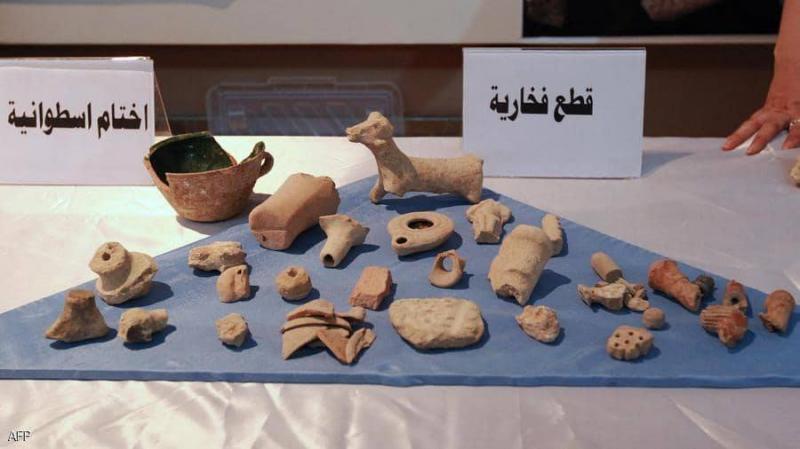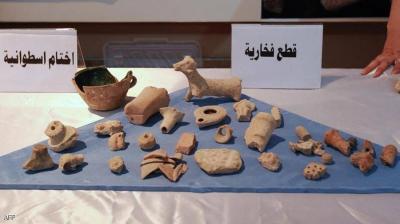The Iraqi Minister of Culture, Tourism, and Antiquities, Hassan Nazim, revealed that the United States has enacted a law that prohibits and criminalizes the trafficking of Iraqi antiquities. The Iraqi minister praised the support that Baghdad has received from Washington, particularly from the U.S. Departments of Justice and State, in combating smuggling and theft of Iraqi artifacts and possessions.
In this context, Iraqi Dr. Mohamed Asim Shenshel stated that Iraqi history and heritage suffered the greatest act of looting and destruction in the last four decades following the American occupation in 2003.
Following the fall of Baghdad in 2003, Iraq experienced significant theft and destruction of its archaeological possessions. Shenshel noted, during an interview with "Sky News" Arabic, that after U.S. forces entered the Iraqi capital, workers at the Iraqi Museum in Baghdad appealed for protection of artifacts from theft. He explained that the American response came four days after looting and destruction occurred at the museum, which housed nearly 40,000 pieces in storage and roughly 20,000 exhibited artifacts at that time.
He added that American forces subsequently confiscated a large number of archaeological pieces from the museum and its storerooms, in addition to seizing two floors beneath the Central Bank of Iraq, where rare artifacts were stored, representing significant historical cultural legacies such as Sumerian, Babylonian, and Assyrian civilizations.
Shenshel emphasized that during that period, some neighboring countries were involved in moving stolen Iraqi antiquities across their territories by hiring mercenaries specialized in looting artifacts and destroying history. He mentioned that the main goal of these operations was not only theft but also the eradication of Iraqi history, depriving future generations of knowledge about their more than 7,500-year-old heritage.
He confirmed that those groups entered through Turkey and Iran after being trained to carry out such destructive tasks and systematic erasure of history and civilization, sometimes engaging in excavation operations. He pointed out that Iraq contains many unexcavated artifacts due to the wars the country has faced and the suspension of government excavation operations, which allowed the mafia of antiquities and destruction to emerge and operate significantly in Iraq.
Shenshel clarified that Iraqi antiquities were subject to theft, vandalism, and looting through three dubious avenues. He stated that the security breakdown in Iraq and the ensuing political turmoil allowed the formation of gangs from within Iraq to steal artifacts without knowledge of their value, selling them domestically before smuggling them abroad. He emphasized that some mercenaries were professionally trained to steal Iraqi artifacts and to destroy others on behalf of Iran.
He added that many of these professional gangs have indeed been monitored and arrested, but many antiquities were stolen beforehand. He pointed out the involvement of several Al-Qaeda-affiliated gangs in stealing artifacts after the fall of Baghdad to procure funds for purchasing weapons.
He affirmed that all these dubious avenues occurred in front of American forces, which significantly contributed to the destruction of Iraqi civilization during that period, as he claimed.
Regarding the American law, he praised this initiative and called for the importance of Washington fulfilling its promises concerning the return of remaining looted Iraqi artifacts, as well as training Iraqi personnel specialized in protecting antiquities.
It is noteworthy that approximately 17,000 artifacts were recovered during Iraqi Prime Minister Mustafa Al-Kadhimi's visit to America with a governmental delegation last July, primarily consisting of unique cuneiform clay tablets. This retrieval was the result of continuous efforts from a team at the Ministry of Antiquities and Heritage, the Ministry of Foreign Affairs, and the Iraqi embassy in Washington, as well as support from the U.S. Departments of Justice and State in combating smuggling and theft through the issuance of a law prohibiting and criminalizing the trafficking of Iraqi antiquities.




